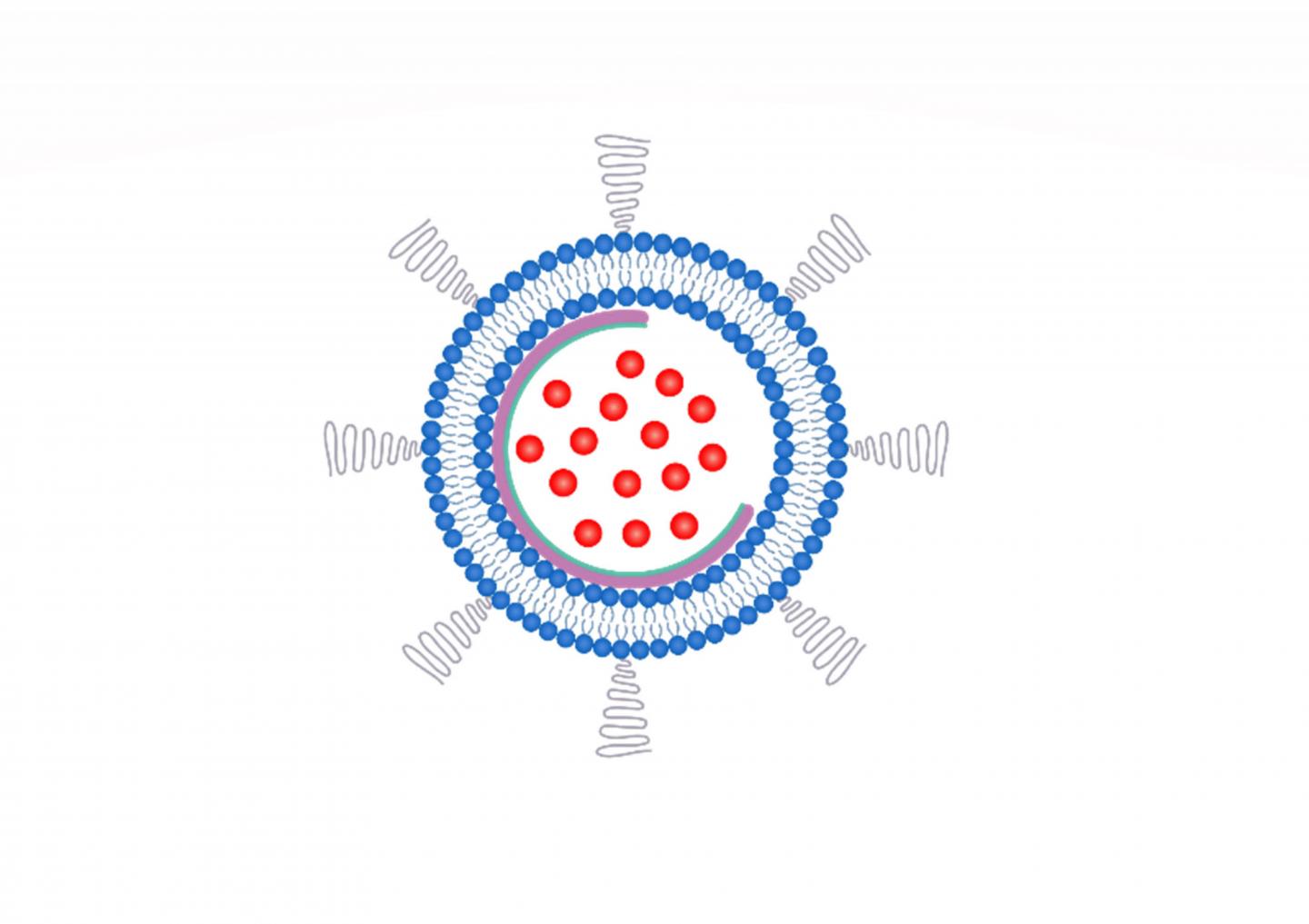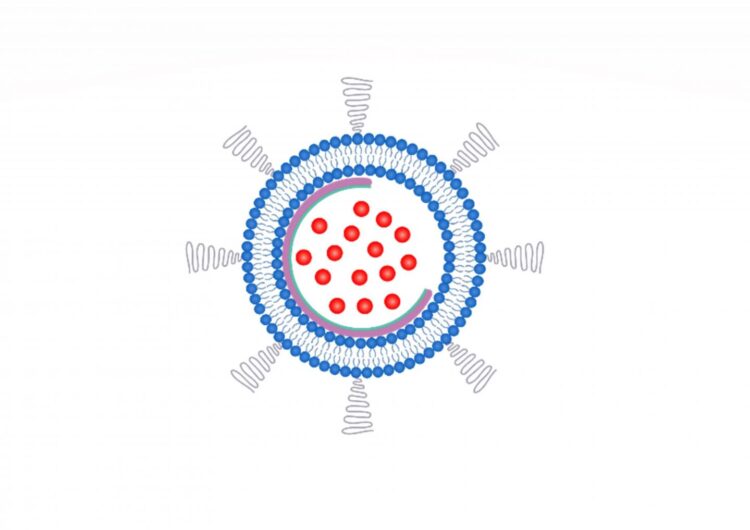
Credit: Nano Letters 2020, DOI: 10.1021/acs.nanolett.0c00495
For decades, scientists have explored the use of liposomes — hollow spheres made of lipid bilayers — to deliver chemotherapy drugs to tumor cells. But drugs can sometimes leak out of liposomes before they reach their destination, reducing the dose received by the tumor and causing side effects in healthy tissues. Now, researchers report in ACS’ Nano Letters a way to stabilize liposomes by embedding a stiff nanobowl in their inner cavity.
Scientists have tried various approaches to prevent liposomes from leaking, such as coating their surfaces with polymers or crosslinking lipids in their bilayers. However, these modifications can alter the properties of liposomes so that they interact differently with cells. Chao Fang, Jonathan Lovell and colleagues wanted to find a new way to stabilize liposomes that keeps their surfaces intact. They decided to try nanobowls — concave nanostructures with an opening that would allow drugs to escape once the liposomal bilayers break up inside a cancer cell. They reasoned that by assembling the lipid bilayer around the nanobowl, the rigid structure would mechanically support the liposome.
The team prepared silica nanobowls, modifying their surfaces with a positively charged chemical group and assembling a negatively charged lipid bilayer around each structure. Then, they loaded the chemotherapy drug doxorubicin into the water-filled center. The resulting nanobowl-stabilized liposomes were less leaky than regular liposomes in serum or under sheer stress, as would be encountered in blood vessels, but still released doxorubicin when taken up by cancer cells in a dish. In an experiment with mice that had transplanted, metastatic breast tumors, animals injected with the nanobowl-liposomes lived longer than those receiving regular liposomes. The nanobowl-treated mice also had smaller tumors compared with the group receiving conventional liposomes, and the cancer had not spread to their lungs, in contrast to the other group. The simple, effective method should be “easy for wide application and holds potential for clinical translation,” the researchers say.
###
The authors acknowledge funding from the National Natural Science Foundation of China, the Shanghai Municipal Science and Technology Commission, the “Shu Guang” Program of Shanghai Education Development Foundation and Shanghai Municipal Education Commission.
The paper’s abstract will be available on May 20 at 8 a.m. Eastern time here: http://pubs.
The American Chemical Society (ACS) is a nonprofit organization chartered by the U.S. Congress. ACS’ mission is to advance the broader chemistry enterprise and its practitioners for the benefit of Earth and its people. The Society is a global leader in providing access to chemistry-related information and research through its multiple research solutions, peer-reviewed journals, scientific conferences, eBooks and weekly news periodical Chemical & Engineering News. ACS journals are among the most cited, most trusted and most read within the scientific literature; however, ACS itself does not conduct chemical research. As a specialist in scientific information solutions (including SciFinder® and STN®), its CAS division powers global research, discovery and innovation. ACS’ main offices are in Washington, D.C., and Columbus, Ohio.
To automatically receive news releases from the American Chemical Society, contact [email protected].
Follow us: Twitter | Facebook
Media Contact
Katie Cottingham
[email protected]





